China's Xi Receives Iran's Raisi As 3-Day Visit Begins
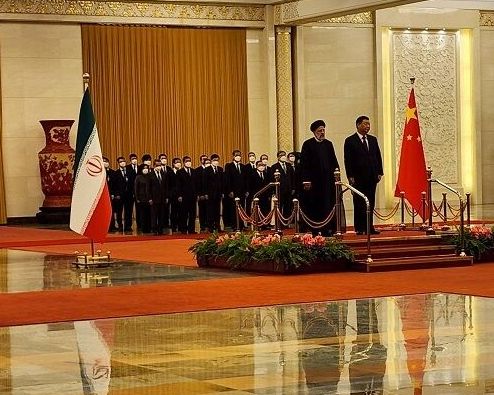
China's President Xi Jinping will hold talks with Iranian President Ebrahim Raisi during his three-day visit to China, as he received him in Beijing on Tuesday.

China's President Xi Jinping will hold talks with Iranian President Ebrahim Raisi during his three-day visit to China, as he received him in Beijing on Tuesday.
Xi had invited Raisi to Beijing, and their meeting comes as both Iran and China face rising tensions with the United States over a range of global issues.
Ahead of his visit, Raisi wrote an editorial in China's state-controlled People's Daily in which he said both countries believe that unilateralism and "violent" measures such as the imposition of "unjust" sanctions are the main causes of crises and insecurity in the world.
In the editorial, Raisi described China as an "old friend", and said Iran's efforts to strengthen bilateral relations would be unaffected by regional and international situations.
The two governments are expected to sign cooperation documents during the visit, according to Iran's state news agency IRNA. A 25-year strategic partnership deal signed in 2021 has remained largely on paper.
Xi visited Saudi Arabia in December and also met members of the Gulf Cooperation Council, followed by a joint statement in which the issue of three Iranian islands in the Persian Gulf was mentioned as a claim pursued by the United Arab Emirates.
The Iranian public showed a strong reaction once the joint statement was reported by Persian media, accusing their own government of being so weak that its ally China was subtly endorsing the UAE claim.
Xi and Raisi pledged to forge a stronger alliance when they last met in person on the sidelines of the Shanghai Cooperation Organization summit in the Uzbek city of Samarkand in September.
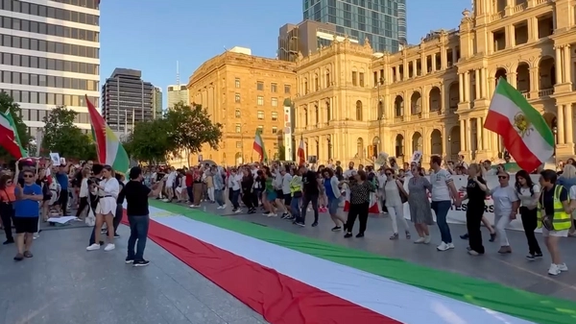
Australia’s home affairs minister announced Tuesday that security agencies disrupted a plot by the Iranian regime against citizens of Iranian descent on its soil.
The individual targeted was an opponent of the Iranian regime who took part in recent protests in Australia. Iranian communities worldwide have held frequent rallies to support their countrymen in their uprising against the government.
The individuals involved in the plot allegedly monitored the home of the anti-regime activist and extensively researched the person and the family, the Guardian reported.
Home affairs minister Claire O’Neil revealed the incident in a speech to the Australian National University, while condemning foreign interference as “one of the core threats our democracy faces.”
The incident took place last year as protests were raging in Iran and security forces were using lethal force against protesters, killing more than 500 and inflicting gunshot wounds on hundreds of others. As young people were dying and many were losing their eyes to shotgun fire, Iranians in many countries began organizing and holding protests to support their compatriots.
Australia’s announcement came one day after British anti-terrorism police announced the arrest and indictment of an Austrian citizen for stalking the headquarters of Iran International television network in London. The network and its journalists have been under threat at least since last November and under police watch.
Earlier this month the Australian Senate expressed concerns about credible allegations of intimidation and threats against Australians, residents and their families, urging the responsible ministers to provide an update to the Parliament and the Australian public on the government’s current assessment of whether persons connected to the regime are undertaking such behavior in Australia.
O’Neil praised the Australian Security Intelligence Organization (Asio). “I’m pleased to say our agencies were on to it like a shot. Asio tracked the operation and shut it down immediately,” she said.
She defended the right of Australian citizens to criticize a foreign regime and added that security agencies were “not going to stand back and have Australians or indeed visitors to our country watched and tracked by foreign governments on our soil.”
The Islamic Republic has long threatened, killed and kidnapped dissidents in democratic, and neighboring countries where they found refuge. The history of these attacks goes back to the 1980s and as recently as last year and as far the United States, where rights activist leader Masih Alinejad in New York was the alleged target of two separate terrorist plots.
The danger to Iranian dissidents abroad is real but O’Neil said, “This is Australia, this is our democracy, and if you engage in activities like this, you will be discovered.”
“To those states who operate in the shadows, I have a simple message – we are watching you. Where our national interest is served by calling out your operations, we will. And to those in Australia making their voice heard, we are acting to protect you.”
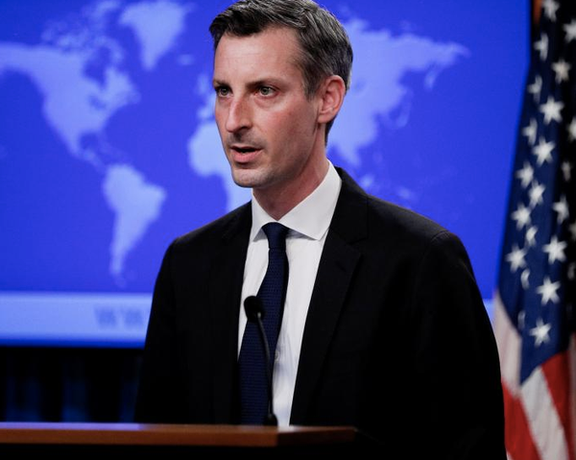
The United States is doing everything possible to counter the “burgeoning” military ties between Iran and Russia, the State Department spokesperson said Monday.
In response to a question by Iran International’s correspondent Samira Gharaei about a report on Monday that Iran has supplied new drones to Russia, Ned Price said that the US has been warning about this expanding “two way” relationship since last year.
Price reiterated that “we are taking action to do everything we can to counter this relationship and to counter the transfer of technology…we have exposed this linkage and we are continuing to galvanize countries around the world to maintain focus on this.”
He went to characterize the alliance between Moscow and Tehran as a “profound threat to the people of Ukraine but also a security relationship that has the potential to be a threat way beyond.”
Asked about Iranian opposition leaders coming together and potentially forming a council to counter the Islamic Republic, Price said the United States cannot make decisions for Iranians but it is eager to listen to both those inside the country and activists in the diaspora, and will continue to hear a wide spectrum of voices.
Price also confirmed that US Special Envoy for Iran Robert Malley was heading a delegation that has arrived in Saudi Arabia to hold discussions with Gulf Cooperation Council countries on air and missile defense, challenges presented by Iran and issues of counter terrorism.
Elsewhere, Price warned about the dangers posed by Iran’s nuclear advances and its export of terrorism, in the context of US Chinese areas of cooperation.

Former head of Iran’s Revolutionary Guard intelligence and advisor to its commander says the “enemy” controls the Internet, so it has to be restricted.
Hossein Ta’eb stated that today "we no longer have aerial bombardments and missiles" and instead a "hybrid war" is taking place.
The clerical regime has blocked thousands of website for the past two decades, but expanded its Internet restrictions at the beginning of antigovernment protests in September.
"The Internet is in control of the enemy, so we have to restrict it to deny the enemy success in its hybrid war," added Taeb.
Islamic Republic officials use the term “enemy” to refer to the United States and its allies.
During a speech at Tehran Polytechnic University (Amirkabir) on Monday, he also attributed support by celebrities for public protests to "hybrid war", claiming that in a hybrid war the fans of a celebrity must get excited to create violence.
Ta’eb also referred to Prince Reza Pahlavi's appreciation for the prominent Sunni cleric Mowlavi Abdolhamid's criticism of the government, saying "we do not have ethnic and religious differences, and Shia and Sunni live together, but some people want to take advantage of this."
He once again accused the US of seeking to create "social rifts" in Iran, so that "both sides in the society will clash first, and then they clash with the government".
He did not say who exactly he meant by the two sides and did not provide any evidence for his claims.
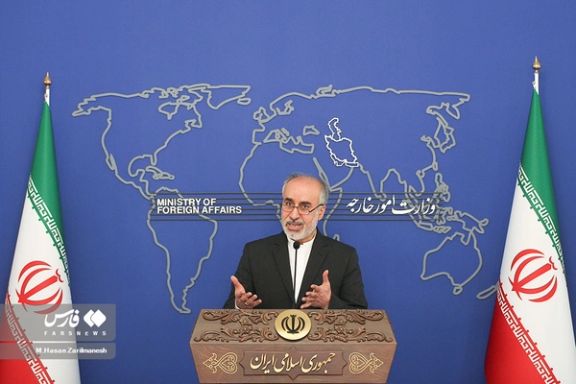
Iran’s Foreign Ministry says it will make the best use of Iraq’s relations with the United States for the resumption of talks to revive the 2015 nuclear deal.
During his weekly press conference on Monday, Foreign Ministry spokesman Nasser Kanaani referred to a meeting with Iraqi Foreign Minister Fuad Hussein and United States Special Envoy for Iran Robert Malley, and said Tehran uses all diplomatic capacities to realize the Islamic Republic’s national interests.
“Some governments have already played a role in this regard in good faith. Some governments are interested in using the capacity of their relations with both sides, and we will always welcome these joint efforts in good faith,” he added. “If the Iraqi government wants to play a role in this area, we take it seriously as the country is our friend, neighbor and brother, and we will use the capacities of the Iraqi government.”
Tehran, facing serious economic and political challenges insists that there is still a chance to restore the Joint Comprehensive Plan of Action, the JCPOA, while the US, which withdrew from the original deal under former US president Donald Trump, has repeatedly announced that it is no longer focused on the deal.
Iranian Foreign Minister Hossein Amir-Abdollahian held a phone call with his Iraqi counterpart on Friday, a day before the Iraqi foreign minister met with Malley. According to the official readout of the meeting by the Iraqi foreign ministry, Hussein and Malley discussed the Iran nuclear talks and the European's attitude toward suspending them. Malley praised Iraq's diplomatic role and the initiatives it launched to ease the tension in the region, the statement added.
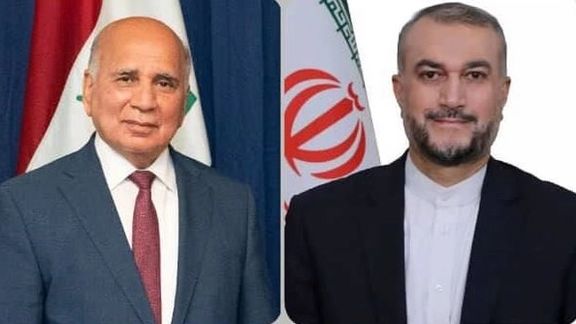
Since the current wave of antigovernment protests engulfed Iran in September, the Biden administration has announced that talks to revive the nuclear deal are not their priority anymore. Considering the international outcry over the Islamic Republic’s crackdown on dissent and human rights violations as well as the growing military ties between Tehran and Moscow, including from the US Congress, the prospects of saving the JCPOA is dimmer than ever.
Moreover, Kanaani expressed Iran’s readiness to exchange prisoners with the US in an “unconditional” manner without linking the swap to other issues, complaining that despite Iran’s goodwill, Washington has not taken an encouraging measure in this regard.
On Saturday, Hussein -- accompanied by Central Bank of Iraq Governor Ali al-Allaq -- met with Secretary of State Antony Blinken, Deputy Secretary of the Treasury Wally Adeyemo, and many other US officials and business leaders to discuss a host of economic issues. But an urgent issue was how to prevent Iran from using Iraq’s banking ties with the United States to launder US dollars and circumvent Washington’s sanctions.
In an interview with Al-Monitor in Washington on Sunday, Hussein said that "It’s no secret that I am in touch with both Iranian and American officials,” adding that “Both sides trust us, and that’s a good thing... It’s in Iraq’s interest that there be less tension between Washington and Tehran."
“I will continue these contacts,” said Hussein. “The US is an important ally, and Iran is an important neighbor, with whom we share many common interests, including a border, religion, culture, economics and trade. I hope both sides will start talking to each other again, but that’s their decision,” he added.
Elsewhere in his remarks, Kanaani touched on the issue of relations between Tehran and Riyadh, stressing the need for diplomacy to return the ties between Saudi Arabia and Iran back on track. Tehran welcomes any mediation by the Iraqi government and hopes that the efforts would improve relations between Saudi Arabia and Iran, he said.
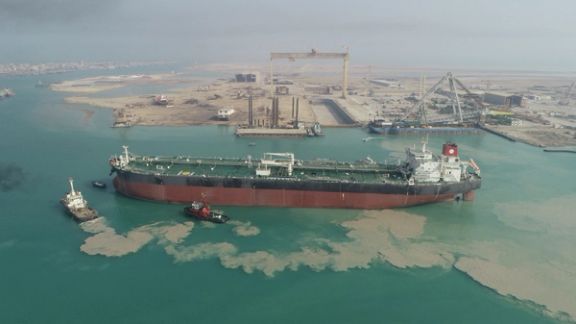
Reuters - Venezuela will contract with an Iranian shipyard to build two oil tankers under an existing agreement, according to people familiar with the matter and documents.
Venezuela's state-run energy firm PDVSA since last year has redoubled efforts to buy and lease oil tankers to rebuild its own fleet. Its maritime operations have suffered from a long-standing lack of capital and U.S. sanctions that have made it difficult to obtain insurance and receive classifications essential to navigate in international waters.
The two new Aframax tankers, to be named India Urquia and India Mara, will cost 31.66 million euros ($33.77 million) each, an internal PDVSA document detailing the proposed agreement showed.
The vessels will be built by Iran Marine Industrial Company (SADRA) at its Bushehr shipyard, which built two previous vessels for PDVSA, the Aframaxes Arita and Anita, that can each carry 500,000-800,000 barrels of oil.
"(Construction of) the India Urquia must start soon," one of the sources said.
REPAID DEBT
The agreement will come after Venezuela settled an outstanding debt to Iran with fuel, according to the document, one of the reasons why the contract has not worked as originally planned.
PDVSA in late 2021 delivered a 644,000-barrel fuel oil cargo to Iran valued at 33.9 million euros.
"The shipyard received 30.34 million euros to settle the outstanding debt for tanker Arita," and another 1.99 million euros went in August to pay accumulated demurrage fees, the document said.
Both the Arita and the second tanker, recently renamed Anita, faced long delays to begin navigating amid the unpaid debts and PDVSA maritime arm's struggles to secure insurance and seaworthy classifications.
The Arita - now renamed Colon - first set sail in 2017 but was later arrested by a vessel operator over unpaid bills. It was returned to PDVSA in 2019 and has mostly remained in Venezuelan waters since.
The Anita departed Iran in late December carrying an Iranian condensate cargo for PDVSA, one of the sources said. It has not yet arrived in Venezuela, according to tanker tracking services.
A separate vessel chartered by Iran's state firm Naftiran Intertrade Company (NICO), the supertanker Wen Yao, also is on its way to Venezuela carrying Iranian condensate as part of an oil swap with PDVSA, monitoring firm TankerTrackers.com said.
By the end of the contract, PDVSA will have paid Iran about 157 million euros for the four vessels, according to the proposal drafted in the document. The deal was first announced in 2006 with much fanfare by Tehran and the government of then-President Hugo Chavez.
Some of the vessels to be handed over by Iran could be operated by third parties, according to one person.
The document did not detail delivery dates for the two tankers to come. PDVSA and SADRA did not reply to requests for comment.
Iran's and Venezuela's oil sectors are under U.S. sanctions that make it difficult to obtain services for vessels built or sailing under those countries' flags, and expose the ships' cargoes to the risk of seizures and retentions.
Washington has in recent years expanded the list of blacklisted tankers linked to Iran and Venezuela, and imposed sanctions on their state oil companies and their maritime arms.